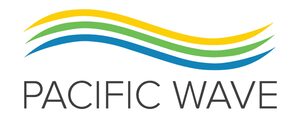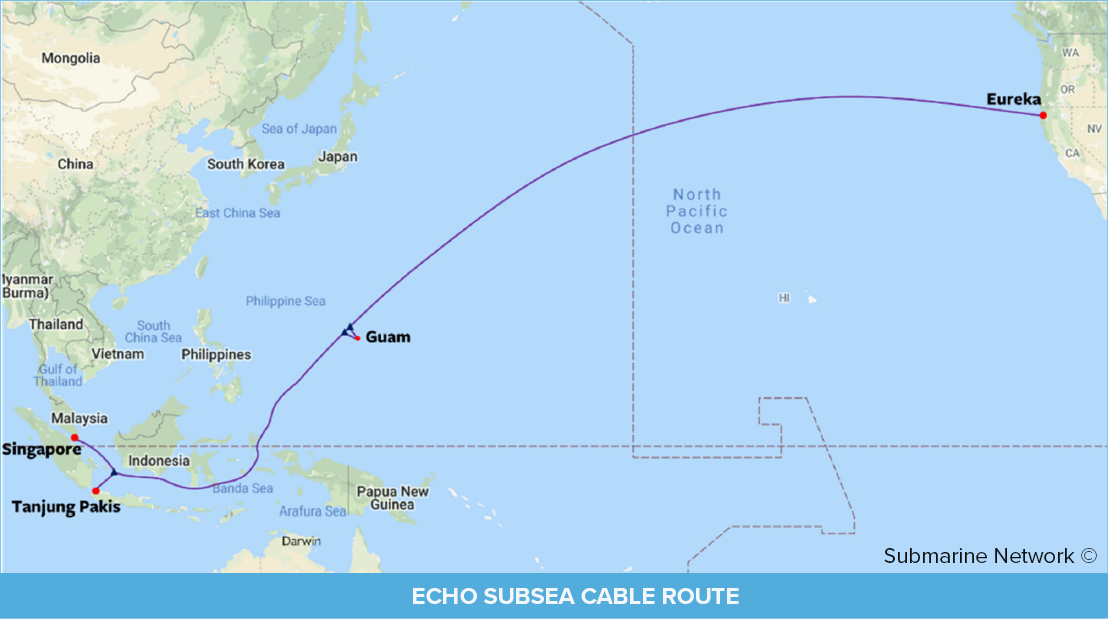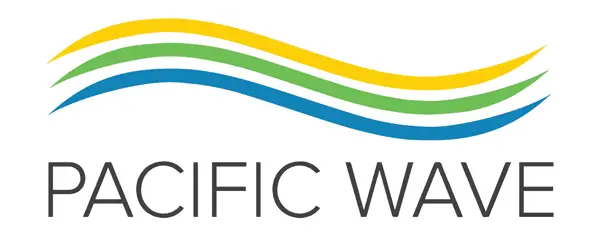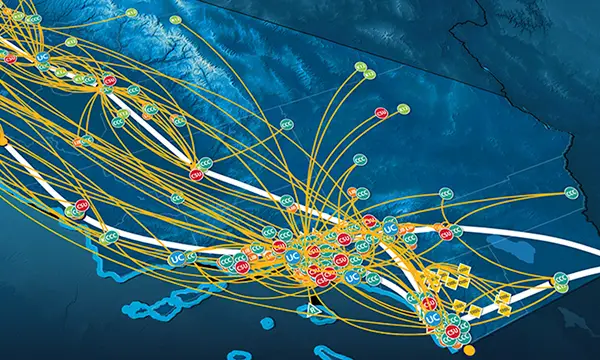- About
- Network
- Community
- Initiatives
- News
- Events
- Blog
- Publications

Pacific Wave, Cal Poly Humboldt, and Internet2 Collaborate on Connectivity to Singapore, Guam, and Jakarta
Categories Pacific Wave Technology & Innovation
Pacific Wave today announced its successful partnership with FLAG, one of the world’s largest privately owned subsea cable networks, for new capacity on the state-of-the-art Echo subsea cable system, significantly expanding connectivity between US university research institutions and their partners in Singapore, Guam, and Indonesia, empowering this global research community with greater speed, reliability, and capacity for their common endeavors.
This upgrade of the Pacific Wave Exchange, a major milestone for trans-Pacific R&E connectivity, will provide a dedicated and resilient path for researchers, students, and institutions to collaborate on data-intensive projects with partners across the region.
Cal Poly Humboldt, a foundational partner in this initiative, played a crucial role in enabling this connection. "Our North Coast location is a critical hub for global data, and we are proud to continue our role in facilitating high-speed access to the Pacific Rim for the R&E community," said Bethany Gilden, Acting Chief of Staff to the President at Cal Poly Humboldt.
As a leader of the nation's largest four-year public university system, the CSU Chancellor's Office provided strategic leadership and support for the project. Its advocacy ensured that this critical infrastructure would benefit students and faculty system-wide, strengthening the CSU’s commitment to academic innovation and international collaboration.
"This new capacity on the Echo cable is a game-changer for U.S. research and education, and particularly for the California State University (CSU) system," said Kendra Ard, Chief Infrastructure Officer, at the CSU Chancellor's Office. "Our ability to connect at high speeds to key research hubs in Singapore, Guam, and Jakarta will unlock new possibilities for data science, environmental studies, and international academic partnerships for all CSU researchers and students."
As the other foundational partner in this initiative, Internet2—the U.S. national research and education network—will integrate this new international capacity into the broader R&E network ecosystem.
“The research and education community has a long history of collaborations to provide transoceanic capacity, enabling and advancing global discovery,” said Howard Pfeffer, President and CEO of Internet2. “Internet2 is proud to work alongside Pacific Wave, Cal Poly Humboldt and the CSU Chancellor's Office to bring this new capacity to empower researchers, educators, and scholars to connect and drive innovation worldwide.”

Key benefits of the Pacific Wave expansion via the Echo cable include:
Direct Connectivity: A new, direct express route connecting the West Coast of the US to Singapore, with branching connections to Guam and Jakarta, offering lower latency than traditional paths.
Enhanced Resilience: Adds geographical diversity to the existing transpacific R&E networks, increasing overall resilience and reliability for R&E traffic.
Support for Data-Intensive Research: Provides the necessary high-bandwidth capacity to support major multinational scientific projects involving big data.
"We are incredibly proud to collaborate with our partners Cal Poly Humboldt, Internet2, the CSU Chancellors Office, and with support from the National Science Foundation, to bring this essential new capacity online," said Louis Fox, President & CEO of CENIC, which, together with the Pacific Northwest Gigapop, has operated Pacific Wave for two decades. "The Echo cable system provides a direct, high-speed connection between the U.S., Guam, and Southeast Asia, and it is critical for enabling next-generation research. This expansion will significantly benefit our member institutions and their partners, fostering greater international collaboration in fields like AI, climate science, genomics, oceanography, and astronomy."
For more information:
Pacific Wave: pacificwave.net
Internet2: internet2.edu
Cal Poly Humboldt:https: humboldt.edu
Cal State University Chancellor’s Office: calstate.edu
Related blog posts
Pacific Wave Signs MoU with New Japan-Based Research and Education Exchange Facility FUJIXP
Pacific Wave, International Networks at Indiana University (IN@IU), and Coalition of Interoperable Networks for Japan (CINJI) and International have signed an MoU formalizing connectivity to FUJIXP, CINJI's new Tokyo-based open exchange facility for research and education networks.
Enabling Network-Based Collaboration Around the World: A Tour of CENIC and Partner Network Maps
On the Network Maps page at the CENIC website, you’ll find maps of all the networks, peering facilities, and exchanges to which CalREN connects, showing how thousands of CENIC member institutions connect to CalREN and to colleagues all over the globe.


